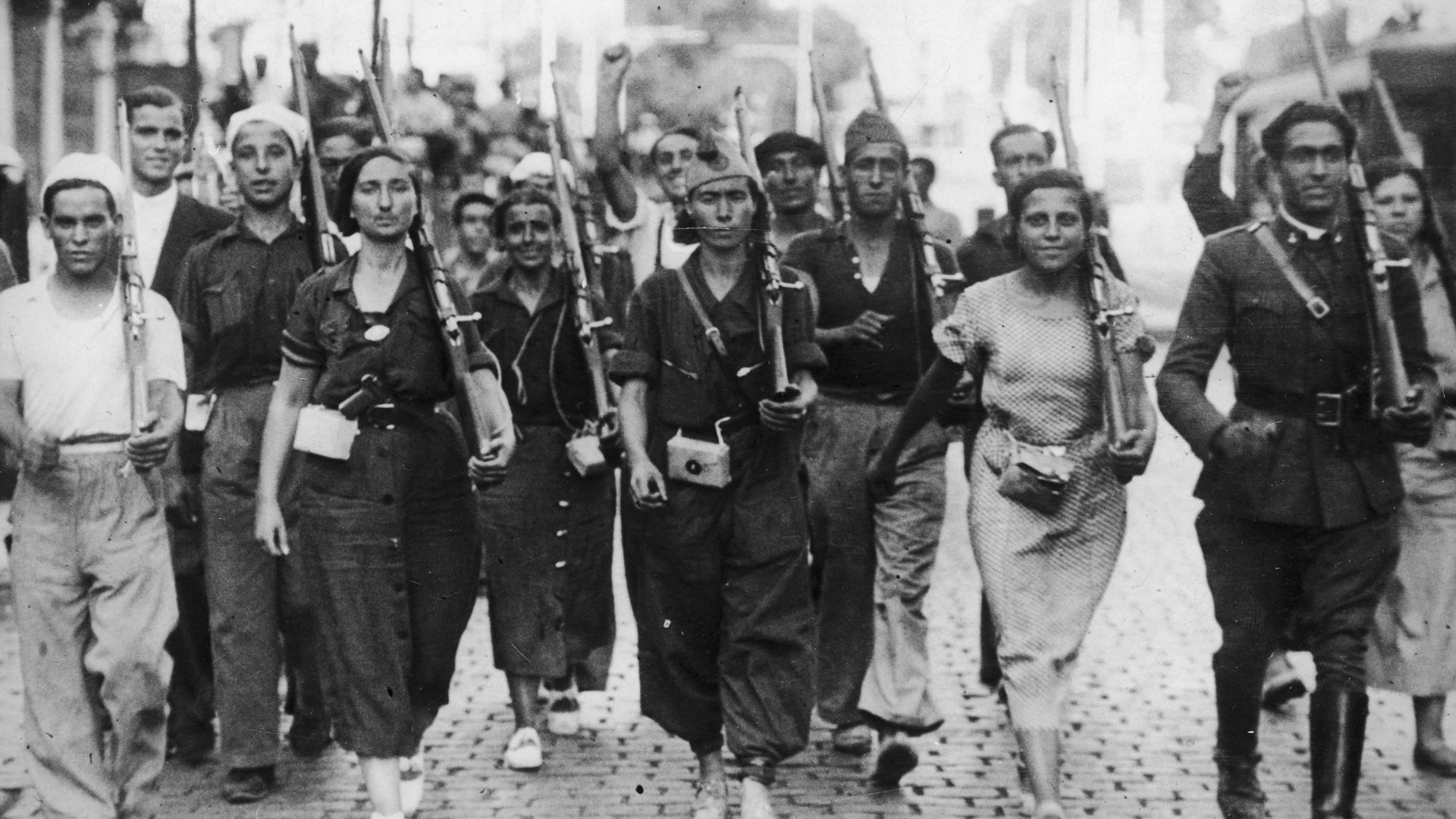
In a world brimming with historical events that have shaped the course of humanity, the Spanish Civil War stands out as a pivotal moment. This conflict, which raged from 1936 to 1939, was not just a prelude to World War II but a battleground for ideologies, where democracy, fascism, and communism clashed. Understanding this war is crucial for grasping the complexities of 20th-century history. Spanish Civil War facts reveal the human stories, political turmoil, and international involvement that defined this period. Whether you're a history buff or a curious learner, these 40 facts will provide a comprehensive overview of the war's key events, figures, and outcomes. Let's delve into the heart of this historical episode, uncovering the layers that make the Spanish Civil War a subject of enduring fascination and study.
Background of the Spanish Civil War
The Spanish Civil War, which raged from 1936 to 1939, was a brutal conflict that reshaped Spain and had far-reaching effects on global politics. It pitted the Republicans against the Nationalists, leading to a devastating struggle that left deep scars.
- The war began on July 17, 1936, when a group of military officers staged a coup against the Republican government.
- General Francisco Franco emerged as the leader of the Nationalist forces.
- The Republicans were a coalition of left-wing groups, including communists, socialists, and anarchists.
- The Nationalists received significant support from Nazi Germany and Fascist Italy.
- The Republicans were backed by the Soviet Union and international brigades of volunteers.
- Over 500,000 people died during the conflict, including many civilians.
- The war ended on April 1, 1939, with Franco's victory and the establishment of a dictatorship.
Key Battles and Events
Several key battles and events shaped the course of the Spanish Civil War. These moments were pivotal in determining the outcome of the conflict.
- The Siege of Madrid began in November 1936 and lasted until the end of the war.
- The Battle of Jarama in February 1937 was a significant Republican victory.
- The Battle of Guadalajara in March 1937 saw the defeat of Italian forces supporting the Nationalists.
- The bombing of Guernica on April 26, 1937, by German planes became a symbol of the war's brutality.
- The Battle of Teruel in December 1937 was one of the coldest and bloodiest battles.
- The Ebro Offensive in July 1938 was the longest and largest battle of the war.
- The fall of Barcelona in January 1939 marked a decisive Nationalist victory.
International Involvement
The Spanish Civil War was not just a Spanish affair. It drew in international powers and volunteers, making it a precursor to World War II.
- The International Brigades consisted of around 35,000 volunteers from over 50 countries.
- Ernest Hemingway and George Orwell were among the famous writers who participated in the war.
- The Non-Intervention Agreement was signed by 27 countries, but many violated it.
- Nazi Germany's Condor Legion played a crucial role in the Nationalist air force.
- The Soviet Union provided tanks, planes, and advisors to the Republicans.
- Mexico was one of the few countries to openly support the Republicans with arms and asylum.
- The war served as a testing ground for new military tactics and technologies.
Social and Cultural Impact
The Spanish Civil War had a profound impact on Spanish society and culture, influencing art, literature, and politics for decades.
- Pablo Picasso's painting "Guernica" is one of the most famous artworks inspired by the war.
- The war led to a significant exodus of intellectuals and artists from Spain.
- Many Spanish children were evacuated to other countries, including the UK and the Soviet Union.
- The Catholic Church largely supported the Nationalists, leading to tensions with the Republicans.
- The war saw the first widespread use of propaganda in modern warfare.
- Women played crucial roles, both on the front lines and in support roles.
- The war influenced numerous literary works, including Hemingway's "For Whom the Bell Tolls."
Aftermath and Legacy
The end of the Spanish Civil War marked the beginning of Franco's dictatorship, which lasted until his death in 1975. The war's legacy continues to shape Spain.
- Franco's regime executed thousands of Republicans and political opponents.
- Spain remained neutral during World War II but leaned towards the Axis powers.
- The war left deep political and social divisions that persisted for decades.
- Franco's death in 1975 led to Spain's transition to democracy.
- The Law of Historical Memory, passed in 2007, aims to recognize and compensate victims of the war.
- Many mass graves from the war remain undiscovered.
- The war is a subject of ongoing historical research and debate.
Lesser-Known Facts
Beyond the well-known events and figures, there are many lesser-known facts about the Spanish Civil War that shed light on its complexity.
- The war saw the first use of paratroopers in combat by the Nationalists.
- The Republicans had a significant number of female combatants, known as "Milicianas."
- The Nationalists used Moorish troops from Spanish Morocco, known as "Regulares."
- The war inspired numerous songs and poems, including "The Internationale" and "Viva la Quinta Brigada."
- The Spanish Civil War was one of the first conflicts to be extensively covered by photojournalists, bringing the horrors of war to the global public.
A Final Look at Spain's Historic Struggle
We've journeyed through the complex tapestry of the Spanish Civil War, uncovering 40 fascinating facts that shed light on this pivotal period. From the ideological battles that tore families apart to the international brigades that joined the fight, and the lasting impact on Spanish society and culture, this conflict was more than just a prelude to World War II. It was a battleground for ideas and ideologies that would shape the 20th century. Understanding these facts not only gives us insight into the past but also helps us grasp the nuances of modern conflicts. As history continues to echo in today's world, the lessons from Spain's historic struggle remain as relevant as ever, reminding us of the costs of division and the enduring value of unity.
Was this page helpful?
Our commitment to delivering trustworthy and engaging content is at the heart of what we do. Each fact on our site is contributed by real users like you, bringing a wealth of diverse insights and information. To ensure the highest standards of accuracy and reliability, our dedicated editors meticulously review each submission. This process guarantees that the facts we share are not only fascinating but also credible. Trust in our commitment to quality and authenticity as you explore and learn with us.


